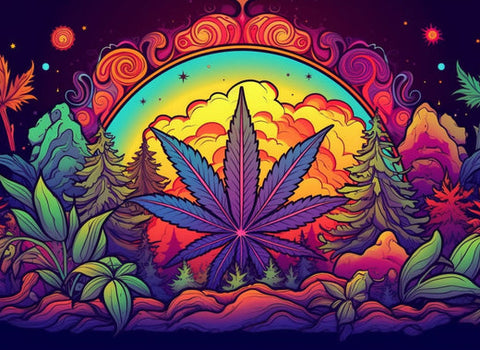
Those with ADHD constantly battle racing thoughts, poor focus, and unpredictable energy levels. CBD (cannabidiol) is a natural way to manage ADHD symptoms and improve quality of life. Unlike traditional ADHD medications, CBD balances your brain chemistry without causing sleep disruptions or energy crashes.
According to a 2024 study in Psychiatric Clinics of North America, participants experienced reduced restlessness, 80% reported lower hyperactivity, and 76% felt less mental frustration after using CBD.
Microdosing cannabis calms the racing thoughts and physical restlessness that plague people with ADHD. Our carefully crafted cannabis edibles with CBD allow you to embrace the power of microdosing for gentle, therapeutic symptom relief.
How does ADHD manifest?
Attention deficit hyperactivity disorder (ADHD) is a neurodevelopmental condition that affects brain development and function in areas that control attention, impulsivity, and self-regulation. It is a complex condition that impacts how the brain processes information and manages everyday tasks. ADHD manifests in several forms defined by their symptoms.
Inattentive type
- Poor attention to detail
- Difficulty sustaining focus on tasks
- Struggles with following instructions
- Often appears not to listen
- Loses important items frequently
- Poor time management
- Gets distracted easily
- Forgets daily activities
- Avoids tasks requiring mental effort
Hyperactive-impulsive type
- Constant fidgeting and squirming
- Can't stay seated when expected
- Runs or climbs inappropriately
- Talks excessively
- Struggles to play quietly
- Always "on the go"
- Blurts out answers
- Has trouble waiting turns
- Interrupts others frequently
Combined type
- Shows six or more symptoms from the categories above
- Symptoms appear in multiple settings
- Impacts daily functioning significantly
- Can shift between types as a person ages
Doctors typically view ADHD as a dopamine deficiency disorder and primarily treat it with stimulant medications such as Adderall or Ritalin that increase dopamine levels in the brain. This approach often ignores the complex web of environmental, dietary, sleep, and lifestyle factors that impact ADHD symptoms.
That’s why many adults with ADHD are ditching traditional stimulants and finding that small doses of cannabis work better for their brains and daily lives.
Why CBD is a gentle option for ADHD patients
CBD is a natural compound found in cannabis plants. It interacts with our body's endocannabinoid system (ECS) to influence mood, sleep, pain relief, cognitive function, and other vital functions. Unlike THC, CBD doesn't cause any psychoactive effects or "high." Instead, it modulates brain signaling and neurotransmitter systems, especially those involving dopamine and serotonin, which are often imbalanced in ADHD brains.
CBD's interaction with this system naturally calms the mind and improves focus and emotional control. Here's why CBD is a gentler option than traditional ADHD stimulant medications:
- No harsh side effects. Traditional ADHD medications often come with a range of uncomfortable effects such as a racing heart, dry mouth, and stomach issues. CBD rarely causes adverse effects.
- Works with your body. While stimulants flood your brain with dopamine to force attention, CBD works more subtly by enhancing your brain's natural ability to focus and regulate emotions. It supports your body's existing systems rather than overriding them.
- More flexible use. Stimulant medications require strict scheduling and can cause withdrawal when stopped. CBD can be used as needed, whether daily or occasionally, and doesn't create the physical dependency that many experience with traditional ADHD medications.
- Better sleep and mood. Many ADHD medications exacerbate anxiety disorders and keep you up at night. CBD reduces anxiety and improves sleep quality, two common struggles for people with ADHD.
- Clear-headed focus. Instead of the intense, sometimes jittery focus that comes with stimulants, CBD helps you achieve a more natural, calm state of attention. You won't experience the harsh peaks and crashes that often come with traditional ADHD medications.
Here’s the catch.
Most research studies examining CBD's effects on ADHD use relatively high doses, often ranging from 300–600 mg per day. These high doses can lead to side effects such as drowsiness, dry mouth, or changes in appetite.
For example, Ayyash, et. al. reveal that CBD may improve the most common symptoms of ADHD in adults over 6 weeks without harming cognitive function, but long-term heavy use has been linked to negative impacts on thinking, education, and work performance.
Hernandez and Levin propose that, despite major improvements in ADHD symptoms with CBD use, long-term use at higher doses showed 35% improvement, with users reporting worsening symptoms.
Microdosing CBD throughout the day is much safer and more effective for managing ADHD symptoms, and you're less likely to experience side effects. Start with small doses (5 mg) and slowly increase until you find what works best for you, giving your body time to adjust naturally.
Find your focus and calm the chaos with Bliss gummies, perfectly balanced with 5 mg of CBD and 5 mg of THC to manage ADHD symptoms naturally.
Is CBD good for attention and focus?
Many people who use cannabis products for ADHD report feeling mentally clearer and better able to focus on tasks. A part of that is CBD’s role in boosting focus and attention. A 2024 study on the effects of CBD on brain function postulates that CBD regulates brain signaling pathways, including those that involve dopamine, to enhance your brain’s own ability to concentrate and reduce mental chatter and restlessness.
The study also explains that CBD interacts with the endocannabinoid system to modulate GABA and glutamate transmission in the brain to create a better balance between excitation and inhibition that people with ADHD often lack. This natural balancing effect calms racing thoughts while improving focus.
CBD for ADHD-related sleep issues
Many people with ADHD struggle with sleep. Lack of quality sleep worsens their attention and focus issues during the day. Research shows that CBD reduces the time it takes to fall asleep and improves overall sleep quality by calming racing thoughts and reducing anxiety—two factors that keep ADHD minds active at night.
Nearly half of CBD users in a large survey study reported falling asleep faster and getting better quality sleep. The benefits became more noticeable after two weeks of regular use. Since sleep problems often make ADHD symptoms worse, using CBD to improve sleep helps people with ADHD function better during the day.
If ADHD keeps your mind racing at night, our CBD gummies for sleep can quiet the noise and prepare your body for rest. Try Sleep Plus edibles; with 25 mg of CBD, just 2 mg of tetrahydrocannabinol (THC), and 3 mg of melatonin, they support a calm mind and deep, restorative sleep.
“I have severe anxiety and this is the only solution I have used where I don't feel like ish the next day. It gives you that pleasant feeling of drifting off to sleep and I don't wake up in the middle of the night in a flight or fight reaction. I wake up the next morning feeling happy and like I got a good night's sleep.”
How does CBD soothe ADHD anxiety?
CBD alleviates anxiety in people with attention deficit hyperactivity disorder by working through two brain mechanisms:
- It increases anandamide, a natural calming compound in the brain. Anandamide reduces anxiety and racing thoughts.
- It activates serotonin receptors, regulating mood and emotional responses that are often challenging for ADHD minds.
Scientific evidence shows that CBD supports a more natural state of calm without the intense ups and downs of traditional medications. It doesn't force focus like stimulants do, but rather helps your brain find its balance while reducing the anxiety and mental chatter that often disrupts attention in ADHD.
Moltke and Hindocha reveal that 42.6% of CBD users experienced significant improvements in anxiety, stress, and sleep. For people with ADHD who struggle with racing thoughts and sleep problems on top of their core symptoms, CBD's therapeutic effects offer meaningful relief.
Our Relax Plus gummies combine 25 mg of CBD and 5 mg of THC for a powerful entourage effect that amplifies their calming properties. This cannabis synergy is better than using CBD or THC alone. With our low-dose cannabis edibles, you can experience a more balanced mind and a soothing calm to help you navigate your day with ease.
Product QUIZ
Need help deciding what product is best for you? Take our quiz, just three questions until your perfect match!
Can CBD interact with ADHD medication?
If you're taking ADHD medication and want to try CBD, CBD can affect how your body processes other medications. Since CBD and ADHD medications are broken down by the same liver enzymes, they might interact with each other. CBD might change how your body processes ADHD drugs, potentially making them more or less effective.
Talk to your doctor before combining your ADHD medication with CBD products. They can monitor any potential interactions and adjust doses if needed.
How much CBD is good for ADHD?
If you’re looking to start CBD for ADHD, you'll want to ease into it. Begin with a small dose between 5 and 25 mg to see what feels right for your body. Once you know how it affects you, you can bump it up to 25 mg per serving if you need more.
Everyone reacts differently to CBD, so there's no one-size-fits-all approach. The trick is to start low and fine-tune your dose until you hit that perfect balance where you feel focused and calm, but not groggy.
How long does CBD take to kick in?
CBD typically takes 30 to 120 minutes to kick in when consumed as gummies. Our microdosed edibles are the best choice for a reliable, therapeutic, and effective approach to managing ADHD symptoms. Our gummies offer consistent delivery of CBD for steady relief from racing thoughts, anxiety, and restlessness without the need for guesswork.
The onset may take longer than other methods, but the effects last longer and provide a more stable experience. With our carefully formulated gummies and cannabis-infused beverages, you can enjoy a predictable, lasting solution tailored to ADHD-friendly symptom relief.
Order the best CBD gummies
Forget unreliable corner store options and questionable brands—choose nama™, your trusted source for safe, effective CBD products that support cognitive function and overall health.
Our meticulously crafted collection of CBD products are made with organic, non-GMO ingredients, free from pesticides and harmful chemicals, and are third-party tested for quality you can trust. Whether you're looking for full-spectrum CBD gummies, with trace amounts of THC for an enhanced entourage effect, or broad-spectrum products that deliver all the benefits of CBD without any THC, nama has you covered.
Full-spectrum CBD products are ideal for ADHD relief, as the trace THC enhances the calming effects of CBD, while broad-spectrum options are perfect if you prefer THC-free solutions. For a more comprehensive and complete relief experience, full-spectrum gummies offer added benefits by leveraging the full range of cannabinoids and terpenes working together.
Our edibles are vegan, gluten-free, and made with premium American hemp, so you know every dose is safe and effective. With delicious flavors and convenient, precisely measured doses, they’re easy to make part of your daily routine.
All our THC and CBD products are federally legal in the US, so why settle for anything less? Take the first step toward calm, focus, and balance today with nama.
CBD for ADHD FAQ
Does CBD make you sleepy?
CBD doesn’t inherently make you sleepy, but its calming effects reduce anxiety and improve relaxation, which might support better sleep. Full-spectrum CBD products with trace THC or terpenoid doses can enhance these effects via the entourage effect and promote deeper rest.
For daytime use, broad-spectrum products may be a better fit because they deliver benefits without causing drowsiness (they contain no THC which may, in higher doses, make you feel sluggish and sleepy). Clinical trials and anecdotal evidence suggest CBD can balance your mood and ease tension without the sedative properties typically associated with prescription drugs or marijuana plants.
Is CBD safe for the liver?
CBD is safe for the liver when consumed at recommended doses. Randomized controlled trials and studies on adults with attention deficit hyperactivity disorder or other medical conditions show minimal risk of liver damage compared to some pharmaceutical treatments. However, extremely high doses of CBD may elevate liver enzymes in certain cases, especially if combined with other medications. High doses or interactions with other medications may pose risks of liver toxicity, particularly in patients with pre-existing liver conditions or concurrent use of hepatotoxic drugs.
Consult a healthcare provider before starting a CBD regimen, particularly if you have pre-existing liver issues.
Can CBD affect your heart?
CBD has been shown to have positive effects on heart health by reducing symptoms of anxiety, lowering stress-induced blood pressure, and improving overall relaxation. Full-spectrum CBD products with terpenoid doses may provide added cardiovascular benefits through the entourage effect.
Individuals with pre-existing heart conditions or those taking heart medications should consult a healthcare provider before using CBD. Unlike prescription drugs or alcohol, CBD doesn’t raise blood pressure or cause palpitations, which makes it a safer alternative for anyone seeking symptom relief for ADHD, stress, or other psychiatric conditions without overstimulating the heart.
Is 100 mg CBD too high?
For most people, 100 mg of CBD in a single dose is high and may lead to side effects such as drowsiness or nausea. For managing symptoms of ADHD, anxiety, or psychiatric disorders, lower doses (e.g., 25–50 mg) are more effective and safer. Low doses of CBD, often found in high-quality gummies or tinctures, are sufficient to achieve therapeutic benefits without overwhelming the body.
Always start with a smaller dose and adjust gradually under the guidance of a healthcare provider, especially if managing specific medical conditions or taking other medications.
Is CBD better than alcohol?
CBD is a healthier alternative to alcohol. While alcohol can worsen symptoms of hyperactivity, disrupt sleep, and lead to dependency or substance abuse, CBD promotes a sense of calm without intoxicating effects. CBD also reduces stress and improves focus without the risks associated with alcohol use disorders.
CBD products, especially full-spectrum gummies that also contain small amounts of THC, also support better cognitive function and emotional regulation, so they are a much safer choice if you seek relaxation or symptom relief without compromising your health.
Is CBD hard on the kidneys?
CBD is not considered hard on the kidneys when used responsibly. CBD has a minimal impact on kidney function, even in individuals with pre-existing medical conditions. Unlike some prescription drugs that can strain the kidneys, CBD is processed primarily through the liver, reducing the risk of kidney-related side effects.
Those people with kidney disease should consult their healthcare provider before starting CBD to make sure it aligns with their effective treatment regime.
What is the best CBD for daytime use?
Broad-spectrum CBD products are ideal for daytime use because they offer the calming benefits of CBD without the trace THC found in full-spectrum options, which might cause drowsiness. Carefully dosed CBD gummies or tinctures can help manage symptoms of attention deficit, anxiety, or stress without disrupting focus or energy levels.
Look for third-party-tested products, such as nama’s broad-spectrum CBD gummies, which are crafted for consistent, therapeutic effects and made with organic, non-GMO ingredients to fit into your daily routine.
Should you take CBD every night?
Taking CBD every night can do you good, especially if you struggle with sleep issues, racing thoughts, or symptoms of anxiety. Full-spectrum CBD gummies with trace THC may enhance relaxation and support a natural sleep cycle via the entourage effect. CBD helps regulate mood and reduce hyperactivity, so it produces positive effects on ADHD-related restlessness or generalized anxiety disorder.
Unlike some medications, CBD doesn’t lead to dependency (known as the cannabis use disorder), which makes nightly use a safe option for ongoing symptom relief. Always start with a low dose and adjust as needed to check that it fits your health condition and treatment regimen.
Can CBD help brain fog?
CBD may alleviate brain fog by improving sleep quality and managing stress, two factors that contribute to cognitive challenges. By interacting with the endocannabinoid system, CBD regulates neurological conditions such as anxiety disorders and post-traumatic stress disorder, which may impair focus and mental clarity. CBD can improve symptom severity, including cognitive function.
A lack of evidence from large-scale studies means these effects of cannabis and CBD on brain fog remain anecdotal. Adults with attention-deficit hyperactivity disorder or mental health conditions may benefit indirectly if CBD addresses underlying symptoms.
Will CBD give me energy?
CBD may not act as a direct stimulant but can improve energy levels by targeting root causes of fatigue such as poor sleep and stress. CBD influences the endocannabinoid system, which regulates mood and energy balance. Medical marijuana patients often report enhanced focus or reduced symptom severity when CBD addresses pain or anxiety.
Strain variations and the route of administration play a role in determining whether it feels energizing or calming. While some anecdotal reports link CBD to increased alertness, others note its relaxing properties. It’s always a good idea to consult a healthcare provider for tailored advice because frequent cultivars or higher doses may have differing effects.
What does CBD feel like?
CBD produces a subtle effect, often described as calming or balancing, without the high associated with marijuana use. Anecdotal reports suggest it may reduce tension, improve mood, and promote focus. Medical cannabis patients have reported relief from pain and inflammation, contributing to an overall sense of wellness.
Differences in symptom severity and neurological conditions can influence individual experiences. The route of administration—whether nasal spray, oil, or gummies—also impacts onset and intensity.
Can CBD cause eye problems?
Although generally safe, CBD may occasionally cause some common side effects such as dry eyes, as seen in some cannabis users. A study sample focusing on glaucoma patients found that high doses of CBD could temporarily increase intraocular pressure, posing risks for those with pre-existing eye conditions.
Current evidence does not link CBD to severe eye problems, though variations between cultivars and dose subgroup differences might play a role. If adverse reactions like eye discomfort occur, consult a healthcare provider to explore personalized plans for safe CBD use, especially for those managing multiple comorbid disorders or neurological conditions.
Resources
Hernandez, M., & Levin, F. R. (2022). Attention-Deficit Hyperactivity Disorder and Therapeutic Cannabis Use Motives. The Psychiatric Clinics of North America, 45(3), 503. https://doi.org/10.1016/j.psc.2022.05.010
Ayyash, H. F., Ogundele, M., Cartas, B. C., & Dahabra, M. (2020). G632 Effectiveness of Cannabidiol oil in the management of ADHD and its co-morbidities: Review of the evidence. BMJ Journals, A228.1-A228. https://doi.org/10.1136/archdischild-2020-rcpch.546
Schouten, M., Dalle, S., Mantini, D., & Koppo, K. (2024). Cannabidiol and brain function: Current knowledge and future perspectives. Frontiers in Pharmacology, 14, 1328885. https://doi.org/10.3389/fphar.2023.1328885
Shannon, S., Lewis, N., Lee, H., & Hughes, S. (2019). Cannabidiol in Anxiety and Sleep: A Large Case Series. The Permanente Journal, 23, 18-041. https://doi.org/10.7812/TPP/18-041
Moltke, J., & Hindocha, C. (2021). Reasons for cannabidiol use: a cross-sectional study of CBD users, focusing on self-perceived stress, anxiety, and sleep problems. Journal of Cannabis Research, 3(1). https://doi.org/10.1186/s42238-021-00061-5
Blessing, E. M., Steenkamp, M. M., Manzanares, J., & Marmar, C. R. (2015). Cannabidiol as a Potential Treatment for Anxiety Disorders. Neurotherapeutics, 12(4), 825-836. https://doi.org/10.1007/s13311-015-0387-1
García-Gutiérrez, M. S., Navarrete, F., Gasparyan, A., Austrich-Olivares, A., Sala, F., & Manzanares, J. (2020). Cannabidiol: A Potential New Alternative for the Treatment of Anxiety, Depression, and Psychotic Disorders. Biomolecules, 10(11), 1575. https://doi.org/10.3390/biom10111575
Chen, S., & Kim, K. (2024). The Role of Cannabidiol in Liver Disease: A Systemic Review. International Journal of Molecular Sciences, 25(4), 2370. https://doi.org/10.3390/ijms25042370
Lindner, T., Schmidl, D., Peschorn, L., Pai, V., Popa-Cherecheanu, A., Chua, J., Schmetterer, L., & Garhöfer, G. (2023). Therapeutic Potential of Cannabinoids in Glaucoma. Pharmaceuticals, 16(8), 1149. https://doi.org/10.3390/ph16081149
Further reading
Does ADHD stem from an endocannabinoid deficiency?
The best anti-anxiety cannabis terpenes
Does microdosing cannabis help with PTSD?
Is CBD good for fighting inflammation?
Can THC and CBD treat glaucoma?
nama CBD FDA & legal disclaimer
Our products are not intended to diagnose, treat, cure, or prevent any disease. They are not a replacement for prescription medications and have not been evaluated by the Food and Drug Administration (FDA).
The information provided on this website does not and is not intended to, constitute legal advice or any statements of the status of any laws. Any information, content, and materials available on this site are for general informational purposes only and are not intended to be relied upon for any purpose.
Readers of this website should contact their attorney to obtain advice with respect to any particular legal matter including decisions on what products are, or are not, legal to sell, possess, or consume. No reader, user, or browser of this site should act or refrain from acting on the basis of information on this site without first seeking legal advice from their own counsel in the relevant jurisdiction.
Only your individual attorney can provide assurances that the information contained herein—and your interpretation of it—is applicable or accurate for your particular situation. Use of, and access to, this website or any of the links or resources contained within the site do not create an attorney-client relationship between the reader, user, or browser, and website authors, contributors, contributing law firms, or committee members and their respective employers.
More articles
About
Learn
Join us on this journey

© Copyright 2025 nama Products LLC. All Rights Reserved.
†These statements have not been evaluated by the Food and Drug Administration. These products are not intended to diagnose, treat, cure or prevent any disease. All information presented here is not meant as a substitute for or alternative to information from health care practitioners. Please consult your health care professional about potential interactions or other possible complications before using any product.
††The information provided on this website does not, and is not intended to, constitute legal advice or any statements of the status of any laws. Any information, content, and materials available on this site are for general entertainment purposes only, and are not intended to be relied upon for any purpose.
123 John Doe Street
Your Town, YT 12345
Store Hours
Sun: Closed
Mon-Fri: 9:00 - 17:00
Sat: 10:00 - 13:00
What to expect at pickup
Closed
Closing at 5pm
Closing at 5pm
Closing at 5pm
Closing at 5pm
Closing at 5pm
Closing at 1pm

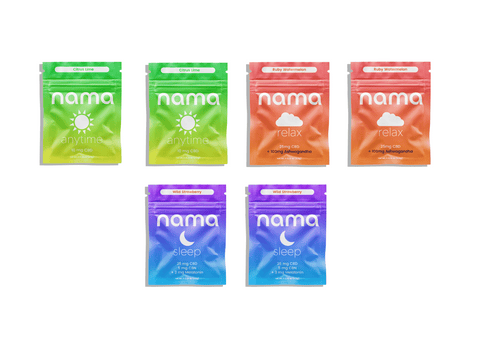
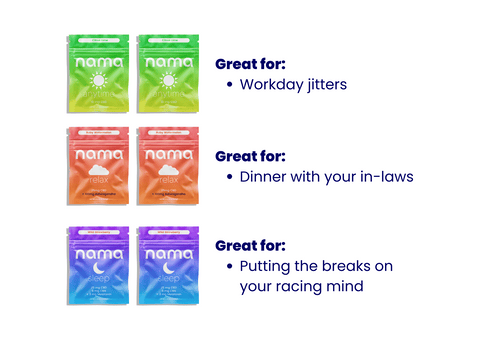
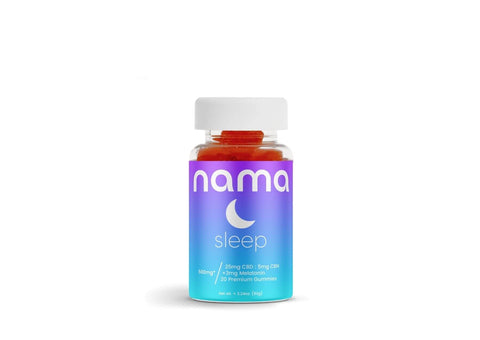
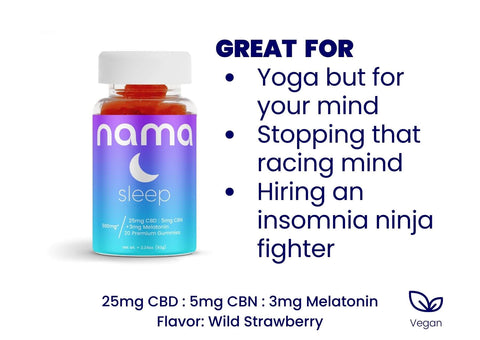
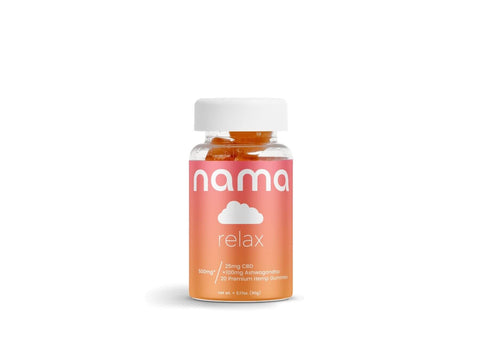
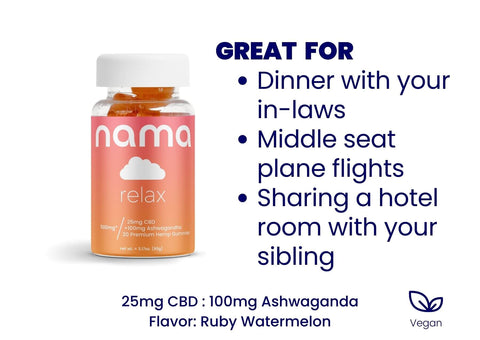
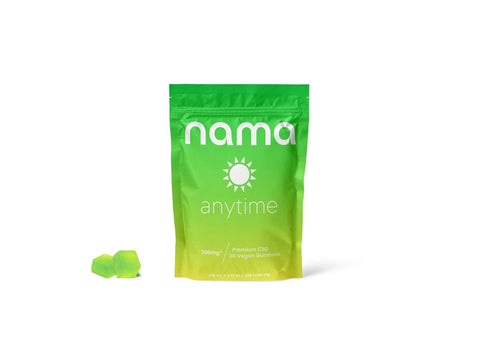
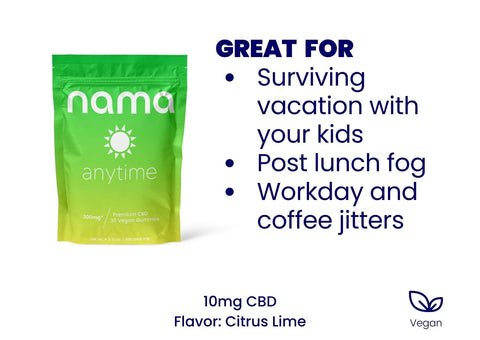
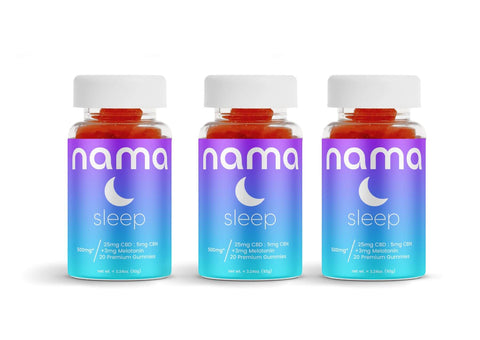
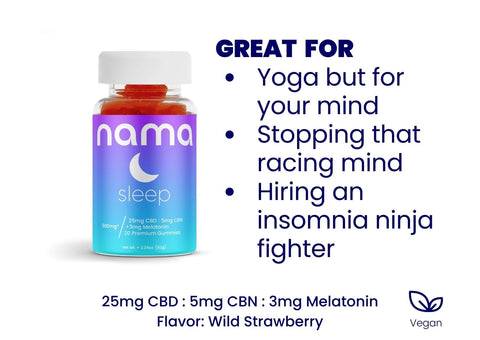
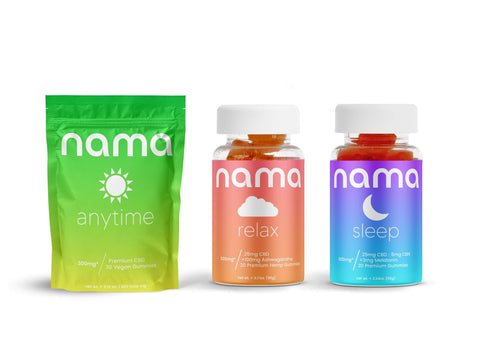
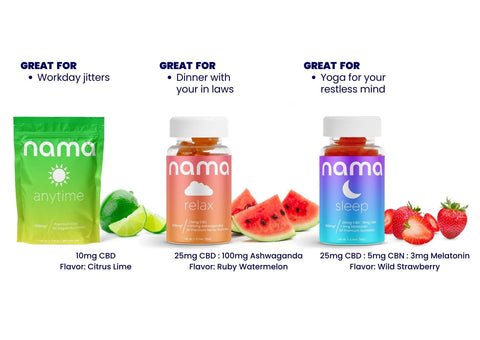
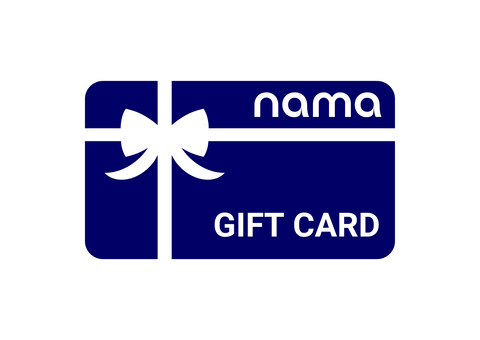







![Buzz Packs™ [THC and CBD Powder Drink Mix]](http://www.namacbd.com/cdn/shop/files/nama_buzz_packs_thc_drink_pack_white_background.png?v=1741884660&width=480)
![Buzz Packs™ [THC and CBD Powder Drink Mix]](http://www.namacbd.com/cdn/shop/files/Buzz_Packs_Label.png?v=1741884660&width=480)




![Buzz Drops™ [THC Drink Drops]](http://www.namacbd.com/cdn/shop/files/nama_thc_buzz_drops.png?v=1711412866&width=480)
![Buzz Drops™ [THC Drink Drops]](http://www.namacbd.com/cdn/shop/files/buzz-drop-wine-comparison.png?v=1736882023&width=480)


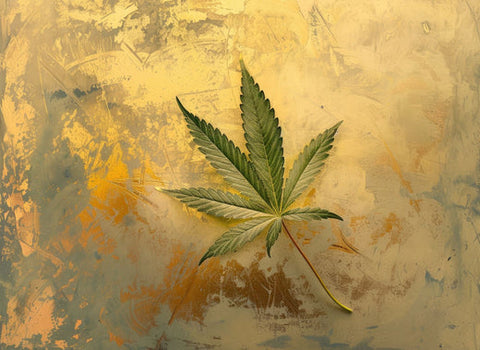
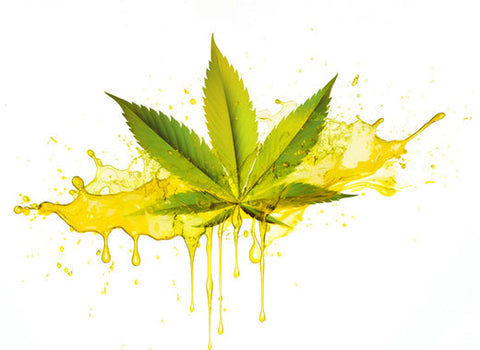


Comments (0)
There are no comments for this article. Be the first one to leave a message!